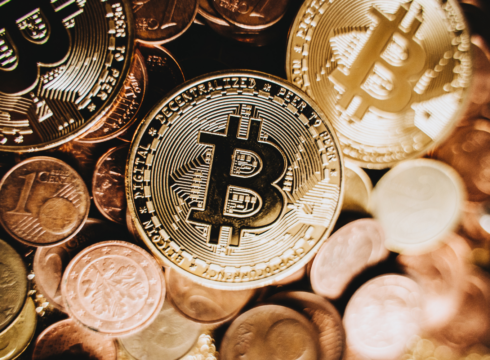RBI Governor Shaktikanta Das said that cryptocurrencies have no underlying value and pose risks for macroeconomic and financial stability
The RBI governor pointed out that the total market cap of cryptocurrencies has fallen to $140 Bn, with $40 Bn wiped out in a year.
The RBI is currently piloting digital rupee of the central bank digital currency for both, wholesale and retail segments
Inc42 Daily Brief
Stay Ahead With Daily News & Analysis on India’s Tech & Startup Economy
In arguably one of his strongest statements against cryptocurrencies, RBI Governor Shaktikanta Das on Wednesday (December 21) said that the next financial crisis will occur due to private cryptocurrencies.
The central bank has been a vocal critic of private cryptocurrencies and its top brass has made its opposition to cryptocurrencies clear multiple times in the past.
Speaking at the BFSI Insight Summit 2022, the RBI governor reiterated the need for prohibiting cryptocurrencies. Das said that cryptocurrencies have no underlying value and pose risks for macroeconomic and financial stability.
“After the FTX episode, (I) don’t think we need to say anything more on crypto,” the governor said, adding that the market cap of cryptocurrencies has fallen to $140 Bn, with $40 Bn wiped out in a year.
Earlier this month, RBI Deputy Governor T Rabi Sankar called for gathering more data with regards to cryptocurrencies before formulating regulations to avoid issuing ‘wrong set of prescriptions’.
“Data is not available. Whatever data is available, (it) is misleading. And making regulations in absence of adequate information carries a very high probability of us actually ending up with the wrong set of prescriptions,” Sankar said.
Despite the RBI making its views about cryptocurrencies clear and advocating a ban on them, the government hasn’t made its stance clear on the issue. Consequently, the space continues to be unregulated in the country. The government continues to push for global regulations for cryptocurrencies.
“Crypto assets by definition are borderless and require international collaboration to prevent regulatory arbitrage. Therefore, any legislation for regulation or for banning can be effective only with significant international collaboration on evaluation of the risks and benefits and evolution of common taxonomy and standards,” Pankaj Chaudhary, MoS in the Finance Ministry, informed the Lok Sabha earlier this week.
Meanwhile, one of the reasons behind the RBI piloting the central bank digital currency (CBDC) is to reduce the appeal of private cryptocurrencies. The central bank rolled out the first pilot of digital rupee for the wholesale segment and the first pilot for retail digital rupee in November and December, respectively.
While the wholesale CBDC recorded a daily average of INR 325 Cr in November, the RBI kickstarted the pilot of retail digital rupee on December 1 by issuing INR 1.71 Cr to four participating banks – State Bank of India, ICICI Bank, Yes Bank and IDFC First Bank.
Meanwhile, many cryptocurrency exchanges have come under the scanner of the Enforcement Directorate (ED). Chaudhary also informed the Parliament that the ED has so far seized INR 907.48 Cr in connection with various cases related to money laundering by crypto exchanges.
The Group of 20 (G20) countries are also trying to reach a policy consensus on crypto assets for better global regulations.
“The regulation should flow from the policy view taken. In fact, one of the priorities which have been put on the table is to help countries build a consensus for policy approach to the crypto assets,” India’s Economic Affairs Secretary Ajay Seth said recently.
Note: We at Inc42 take our ethics very seriously. More information about it can be found here.


